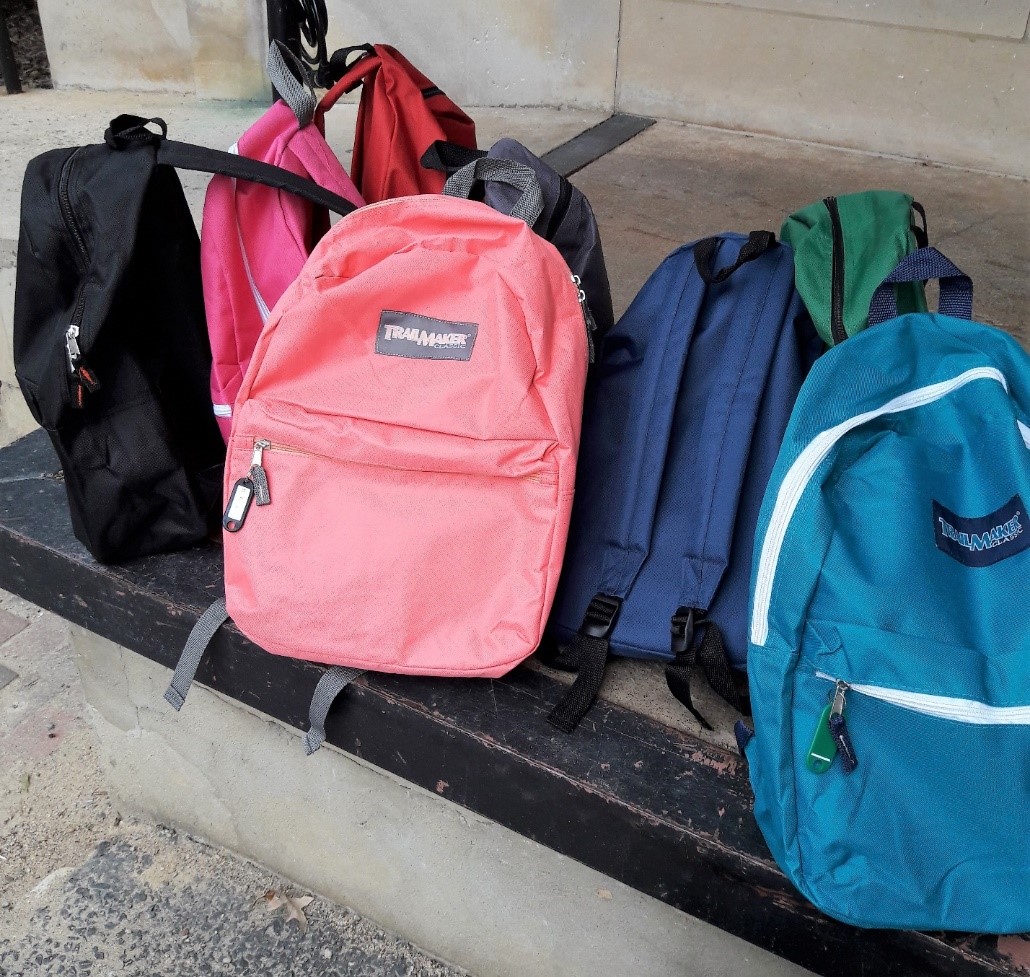![]()
If you’ve seen any publicity about the Community-Driven Archives grant, you’ve probably seen references to “the Backpacks.” One of the central initiatives for the CDA Team is transportable archiving kit that demystifies the technical jargon and supplies resources for communities. This has manifest as the “Archivist in a Backpack” and the slightly less catchy but equally important “Archivist in a Roller bag.” These are a simplified archive in an easily portable kit that we bring and mail to communities doing archival and cultural heritage projects. In April of this year, the online forum HyperAllergic published an article about our “Archivist in a Backpack” project. Since then, we have had an enormously positive response from people all over the world and I think the speed and reach of the backpacks has surprised us all. We’ve received numerous inquiries about the backpacks and our grant project in general. This might seem like a basic administrative detail, but when you consider that each inquiry has the potential to become a new resource and an introduction to dozens of new colleagues, it is no small feat in networking. While most of my conversations have been with people in the US, we’ve had interest all over the globe. From a member of a Canadian first Nation, to a library in New South Wales, an Archivist in the UK doing her own community work with immigrant Somalian communities and a theatre professional in Germany, something about the Backpack project has struck a chord. A version of the backpack has been used in Mexico with Yucatán Mayan students with materials being translated into Spanish and Yucatec Mayan. For more information about this project check out this National Geographic article!
 Sounds great, but why all the hoopla? Backpacks aren’t exactly cutting edge. I think it is the mix of the un-apologetically bright colors of the kits (though we do offer some more muted tones) and the awe that digging into a family or community’s past almost always elicits. But there are other components to the backpacks, not always mentioned in the emails. Social justice, commemoration, and community healing often feel like implicit threads of the conversations and the projects new colleagues talk about.
Sounds great, but why all the hoopla? Backpacks aren’t exactly cutting edge. I think it is the mix of the un-apologetically bright colors of the kits (though we do offer some more muted tones) and the awe that digging into a family or community’s past almost always elicits. But there are other components to the backpacks, not always mentioned in the emails. Social justice, commemoration, and community healing often feel like implicit threads of the conversations and the projects new colleagues talk about.

The backpacks look unimposing, but I think they represent something quite profound. The backpacks invite people to tell their histories so that the information can be put towards a larger purpose. The backpacks aren’t just about a walk down memory lane (as important as that is) but many of the people with whom I’m in contact have a mission that the archival resources are to be used in forwarding. Whether it’s about connecting generations in learning about the many iterations of civil rights, housing and preventing gentrification and displacement, or combating rampant minority stereotyping and erasure practices, the backpacks are an accessible way for communities to take control. The initial emails show that many projects are just getting off the ground or are still in the early planning stages. It will be interesting to see what the results are for everyone, especially since we at CDA are right there with them. It’s a “figure-out-as-you-go”, one foot in front of the other kind of process, collaborating between institutions, communities, and newly-found colleagues. At least we can all have coordinating backpacks.
We post every week on different topics but if there is something you’d like to see, let us know either in the comments or email Claire our Community Outreach Coordinator: clairela@live.unc.edu.
Follow us on Twitter @SoHistColl_1930
#CommunityDrivenArchives #CDAT #SHC
#EKAAMP #HBTSA #ASHC #SAAACAM
#yourstory #ourhistory #community #AiaB
